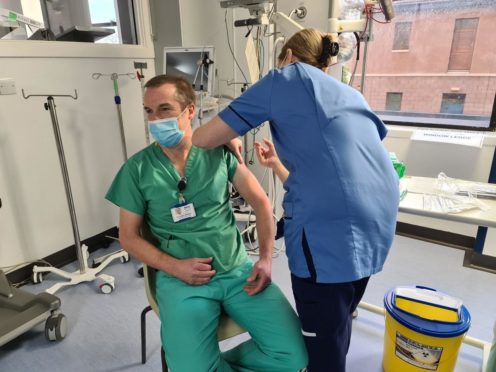Around a quarter of people in Scotland would be “hesitant” to receive a Covid-19 vaccine, a new study has revealed.
Research from Strathclyde University, based on two polls taken at different points last year, found that between 74% and 78% of Scots would be willing to be vaccinated against the coronavirus.
That leaves “a sizeable minority of the public who were hesitant about receiving a vaccine”, it says.
The study, led by psychologist Dr Lynn Williams on behalf of the chief medical officer, is the first to tackle the question of how many people intended to get the vaccine in Scotland.
It found that reluctance around the vaccine varied significantly based on income level, education level, ethnicity and shielding status – with those most at risk from Covid’s impact often less keen to be inoculated against it.
White people were nearly three times as likely to want to be vaccinated as people in Black, Asian and Minority Ethnic (BAME) groups, the study found.
However, it adds: “[I]t should be noted that this binary approach to looking at differences in ethnicity is problematic, as it may mask important differences between diverse racialised and minoritised communities with distinct cultures and social norms.”
The research, published last week in the journal Vaccines, also found that people with the highest level of education were two and a half times more likely to accept the jag than those with the lowest level.
The authors concluded that future efforts to promote the vaccine would “need to be targeted to a range of sub-populations and diverse communities”.
There were 3,436 participants in the initial poll, which was conducted during the first national lockdown, all of whom lived in Scotland.
The second poll was carried out two months later, when restrictions had been eased, with 2,016 people from the original group following up.
Both polls were carried out before any vaccines had been officially approved for use.
The results were similar to a global study carried out by Ipsos Mori, which found that 74% of people around the world would be willing to get the vaccine – albeit with significant fluctuations between countries.
